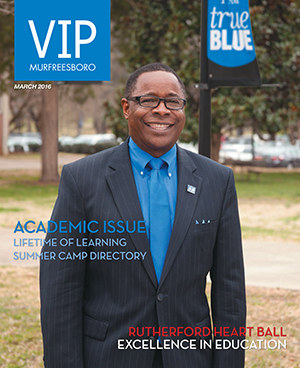VIProfile: Dennis Renshaw
/Author of “Footprints on the Mountain: Hiking the Appalachian Trail from Georgia to Maine”
Story by Lyda Kay Ferree, The Southern Lifestyles Lady. Photography courtesy of The HillHelen Group LLC.
Dr. Dennis Renshaw lived in Alamo, but he grew up in Iran, India, and Indonesia as his father was with the United States State Department.
At age 15, Dr. Renshaw climbed Mount Damavand, Iran, elevation 18,406 feet, the highest mountain in Iran and the highest volcano in Asia. It’s snow-covered year-round.
“You have to climb the last 3,000 feet in the dark and summit at sunrise so you can quickly descend due to toxic sulfur emissions caused by the heating of the sun,” Dr. Renshaw said.
Renshaw attended high school at the Tehran American High School and received his B.S. in math and chemistry at Lambuth College in Jackson, Tennessee. He ran track and cross-country in high school and on scholarship in college.
He studied engineering at the University of Tennessee—Knoxville and graduated cum laude in 1992 from Union University with a degree in marketing and management. At Memphis Theological Seminary, he received his master of divinity in 1999 and doctor of ministries in 2006. He has worked as an industrial engineer, manager of engineering, in industrial sales and as an industrial sales manager.
He has been an ordained elder in the United Methodist Church since 2002 and has served churches for 14 years as a pastor.
Dr. Renshaw hiked the Appalachian Trail (which he calls the AT) during the summers of 2013 and 2015. Hiking 2,186 miles over hazardous mountains into steep valleys through every kind of terrain and weather imaginable turned in to a 5.5-month adventure, especially at age 66. Dr. Renshaw started this trek as a challenge to himself because his research of the Appalachian Trail said only a small percentage of those starting the hike actually finished.
Newly retired as a United Methodist pastor, he felt God’s presence in unique ways as he trekked across the 14 states to Mount Katahdin in Maine. Read about his adventures, challenges, danger, and resolve in being God’s hand and feet as he felt God’s “Footprints on the Mountains.”
Dr. Renshaw is an avid golfer, a certified scuba diver, and he has a commercial pilot’s license. He built half of his home and can do most maintenance on the home, including electrical, plumbing, framing, woodwork, and yard work.
He is married to Judy Renshaw, and they have four children and seven grandchildren. They love to travel in their fifth-wheel camper. They’ve traveled to Canada and Alaska twice and 26 states in total.
“Nothing could have prepared me for what I was about to undertake!”
VIP: Why did you decide to hike the Appalachian Trail from Georgia to Maine? Was this a longtime goal, and what was the driving force that led you to attempt this solo hike through every kind of terrain and weather imaginable?
DR: I enjoy the outdoors and mountains, and when I heard that only 800 complete the Trail out of about 10,000 who start it, I knew I had to prove to myself that I could do it. Also, three of our children have hiked parts of the Trail and that piqued my interest.
VIP: In your very interesting book you state that you “had no concept of what you were starting when you began your journey.” What were the major surprises and what were some lessons you learned when you began your hike? Example: Make camp when the weather turns bad before it gets to the danger stage. Second: Know your equipment.
DR: The biggest surprise was the difficulty of the Trail in all kinds of weather that seems to never end, carrying up to 40 pounds on my back. But even more difficult is getting up day after day and doing it all again! Determination and endurance are critical.
VIP: Ten thousand hikers start the Appalachian Trail every year. Only 10 percent finish. What enabled you to complete this challenging hike?
DR: Perseverance and a daily goal are important. But the encouragement from family and friends, and determination to finish pushed me every day to hike as far as I could. I was focused. After several weeks, I came to the realization that God was around me in nature, in others I met, and I felt His care for me when I should have been seriously hurt in falls and circumstances but only sustained, at worst, minor injuries. It was more than luck.
VIP: You have faced numerous challenges in your life. Was your 2,186-mile hike of the longest hiking-only footpath in the world THE greatest accomplishment you have achieved? If so, why?
DR: Certainly, hiking any part of the Trail is an accomplishment, but for me the greater accomplishment is not about me but about our God. God has loved me and changed me through the years and enabled me to see that I am a child of God and that He loves me unconditionally. I felt that while hiking on some of my most difficult and worst days.
VIP: Talk about training for this journey.
DR: I trained hard and very deliberately using much of the same training intentionality I learned from running track and cross country in college. I started by walking one to two miles carrying light weights and gradually putting increasingly heavier weights in my pack and walking/hiking longer distances. As I grew stronger and increased my endurance, I started hiking 8 and then 16 miles at a nearby state park that has hills and trails. Finally, I added working out at a gym lifting weights and going up-and-down as many as 75 flights of stairs. I thought I was ready. I was in extremely good shape, but the truth is I was NOT ready for the difficulty of the Trail. Another six weeks actually hiking the Trail gave me my “hiking legs” where I could hike 20 or more miles a day up and down mountains.
VIP: What was your process for learning what to carry on your journey? How did you educate yourself on how to dress for all types of weather and other challenges? Did you talk to hikers who have hiked the Appalachian Trail before your journey began?
DR: Learning what equipment works for you is a matter of trial-and-error. Footwear was the most difficult for me. Not only what boots to wear but add to that the fact that your feet “grow” one-half or more shoe sizes after about a month. I hiked parts of the Trail before setting out for my “through hike” and saw other people’s equipment, and I spent time on the internet and particularly in stores that cater to hikers. My pack and hat were the only two things that I did not change over time.
VIP: What is the most important advice you would offer aspiring hikers who have a desire to hike the Appalachian Trail?
DR: First, train like you have never done before. Second, find a 30 to 40-mile section of the Trail and hike that. You will learn a lot about your equipment and yourself by doing that.
VIP: Only ten percent of those starting the hike finish the hike. Why is this true, and what sets you apart from other hikers who do not complete this rigorous hike? Was it tenacity or the will to succeed or both?
DR: Many people start out without preparing in any way and most people quit within the first 50 miles because they were expecting a “stroll in the woods” instead of the most strenuous and difficult thing they have ever done. The ones who succeed in hiking the entire Trail have done their homework and then have that determination that nothing will stop them. It takes endurance, perseverance, tenacity, and the idea that nothing will stop you.
VIP: As you trekked across the 14 states to Mt. Katahdin in Maine, how did God’s presence present itself in unique ways?
DR: One time I fell hard and should have been seriously hurt but did not even receive a bruise. Two times I experienced almost immobilizing vertigo while miles from the nearest help but somehow made it out safely. Another time I met a man one morning who had prayed that a preacher would come by so he could talk, and I showed up the next morning. I saw God in people who helped me, encouraged me, fed me, gave me rides, and in those who gave me advice and directions on the Trail. And who cannot see God in sunrises, looking up at mountains and down at rivers and streams, and in the plants and animals?
VIP: How did this journey change your life and your wife Judy’s life?
DR: It brought us both closer together and gave us more respect for the challenges people endure while separated. Through Judy’s encouragement and help I took the step from just writing a story for family about my hike to writing a book and publishing it. Perhaps my (our) book is reaching more people and telling God’s story in ways I was unable to as a local pastor.
VIP: I understand you and your lovely wife, Judy, recently returned from hiking the Appalachian Trail. Is she experiencing the same challenges as you did on the Trail?
DR: We were near Gatlinburg, TN. I hiked up the Trail twice each time hiking about 12 miles. Judy is not a hiker, but we did stroll along some beautiful “flat” trails near our campground.
VIP: If you could offer only one piece of advice to hikers whose goal is to walk the Appalachian Trail, what would it be?
DR: First, train hard and learn about the Trail and equipment. Second, and the most difficult, is to be prepared to be wet, cold, and hungry, and more tired than you have ever been…and still find it in you to go on.
What to Know
Dr. Dennis Renshaw
Author and Pastor; available to deliver talks to clubs and churches
www.dennisrenshaw.com

















































